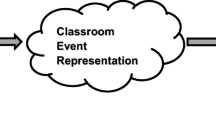Abstract
Haraway foregrounds many stories that we, in a late capitalist era, tell ourselves in order to justify, or not even notice, actions that are harmful to all living things. While I am mindful of Haraway’s excellent attention to the ways that ‘stories tell stories, thoughts think thoughts, and knots knot knots,’ I argue that we must take great care when we, as educators, blur the lines between facts and fiction; reality and art. When everything becomes a story—with some stories simply being more compelling than other stories—we run the risk of contributing to the very sense of unmooring (from each other, from all living, from the earth) that has led us to the status quo where arctic icecaps are melting, living things are becoming extinct, and humans are suffering from man-made pollution. In this paper, I trouble the use of stories to draw attention to the ecological harm we have done to our earth. While stories can be powerful, there are risks associated with how we tell stories; and particular risks when we blur the lines between critical storytelling and the idea of something as ‘factual’. Storytelling, and blurring the lines between stories and facts, can have negative implications for our quest to generate a sense of ‘response-ability’ for our planet and all who live on it. In order to make that argument, I first talk about my own story and the ways that I have used stories in the classroom. I then touch on Haraway and her particular use of (and argument for the use of) stories. I then foreground the practice of telling truths with stories by exploring the use of critical fiction and narrative inquiry. I conclude with implications for pedagogy.
Similar content being viewed by others
Notes
Haraway, D. Staying with the Trouble, p. 132.
Ibid. p. 132.
Haraway, D. Staying with the Trouble.
Ibid, 2–3.
Ibid., 1.
Ibid.
Ibid.
Ibid.
Ibid.
Mar, Raymond A., and Keith Oatley. "The function of fiction is the abstraction and simulation of social experience." Perspectives on psychological science 3, no. 3 (2008): 173–192.
Oatley, Keith. "Why fiction may be twice as true as fact: Fiction as cognitive and emotional simulation." Review of General Psychology 3, no. 2 (1999): 101.
Ibid. p. 101.
Tyson, Cynthia A. "“Shut my mouth wide open”: Realistic fiction and social action." Theory Into Practice 38, no. 3 (1999): 155–159.
Ibid.
Martin-Smith, Alistair. "Quantum drama: transforming consciousness through narrative and roleplay." The Journal of Educational Thought (JET)/Revue de la Pensée Educative (1995): 34–44.
Ibid.
Dahlstrom, Michael F. "Using narratives and storytelling to communicate science with nonexpert audiences." Proceedings of the National Academy of Sciences 111, no. Supplement 4 (2014): 13614–13620.
Eslick, Andrea N., Lisa K. Fazio, and Elizabeth J. Marsh. "Ironic effects of drawing attention to story errors." Memory 19, no. 2 (2011): 184–191.
Fazio, Lisa K., and Elizabeth J. Marsh. "Older, not younger, children learn more false facts from stories." Cognition 106, no. 2 (2008): 1081–1089.
Marsh, Elizabeth J., Michelle L. Meade, and Henry L. Roediger III. "Learning facts from fiction." Journal of Memory and Language 49, no. 4 (2003): 519–536.
Marsh, Elizabeth J., and Lisa K. Fazio. "Learning errors from fiction: Difficulties in reducing reliance on fictional stories." Memory & Cognition 34, no. 5 (2006): 1140–1149.
Ibid.
Cronon, William. "A place for stories: Nature, history, and narrative." The Journal of American History 78, no. 4 (1992): 1347–1376.
Land-Zandstra, Anne M., and Cathelijne R. Stoof. "Geoscience on television: a review of science communication literature in the context of geosciences." Hydrology and Earth System Sciences 20, no. 6 (2016): 2507.
Botturi, Luca, Chiara Bramani, and Sara Corbino. "Digital storytelling for social and international development: from special education to vulnerable children." International Journal of Arts and Technology 7, no. 1 (2014): 92–111.
Ibid.
Dahlstrom, Michael F. "Using narratives and storytelling to communicate science with nonexpert audiences." Proceedings of the National Academy of Sciences 111, no. Supplement 4 (2014): 13614–13620.
Smorti, Andrea, and Chiara Fioretti. "Why narrating changes memory: a contribution to an integrative model of memory and narrative processes." Integrative Psychological and Behavioral Science 50, no. 2 (2016): 296–319.; and Brockmeier, Jens. Beyond the archive: Memory, narrative, and the autobiographical process. Oxford University Press, 2015.; and Salmon, Christian. Storytelling: bewitching the modern mind. Verso Books, 2017.; and Clark, Margaret S., and Susan T. Fiske. Affect and Cognition: 17th Annual Carnegie Mellon Symposium on Cognition. Psychology Press, 2014.
Connelly, F. Michael, and D. Jean Clandinin. "Stories of experience and narrative inquiry." Educational researcher 19, no. 5 (1990): 2–14. P. 2.
Blumenfeld-Jones, Donald. "Fidelity as a criterion for practicing and evaluating narrative inquiry." International Journal of Qualitative Studies in Education 8, no. 1 (1995): 25–35.
Clandinin, D. Jean, Debbie Pushor, and Anne Murray Orr. "Navigating sites for narrative inquiry." Journal of teacher education 58, no. 1 (2007): 21–35.
Georgakopoulou, Alexandra. "Thinking big with small stories in narrative and identity analysis." Narrative inquiry 16, no. 1 (2006): 122–130.
Spivak, Gayatri Chakravorty. "Can the subaltern speak?." Can the subaltern speak? Reflections on the history of an idea (1988): 21–78.
Gazarian, Priscilla K. "Digital stories: Incorporating narrative pedagogy." Journal of Nursing Education 49, no. 5 (2010): 287–290.
Andrews, Catherine A., Pamela M. Ironside, Catherine Nosek, and Sharon L. Sims. "Enacting narrative pedagogy: The lived experiences of students and teachers." Nursing Education Perspectives 22, no. 5 (2001): 252.
Diekelmann, Nancy. "Narrative pedagogy: Heideggerian hermeneutical analyses of lived experiences of students, teachers, and clinicians." Advances in Nursing Science 23, no. 3 (2001): 53–71.
Author information
Authors and Affiliations
Corresponding author
Rights and permissions
About this article
Cite this article
Greenhalgh-Spencer, H. Teaching with Stories: Ecology, Haraway, and Pedagogical Practice. Stud Philos Educ 38, 43–56 (2019). https://doi.org/10.1007/s11217-018-9628-1
Published:
Issue Date:
DOI: https://doi.org/10.1007/s11217-018-9628-1




